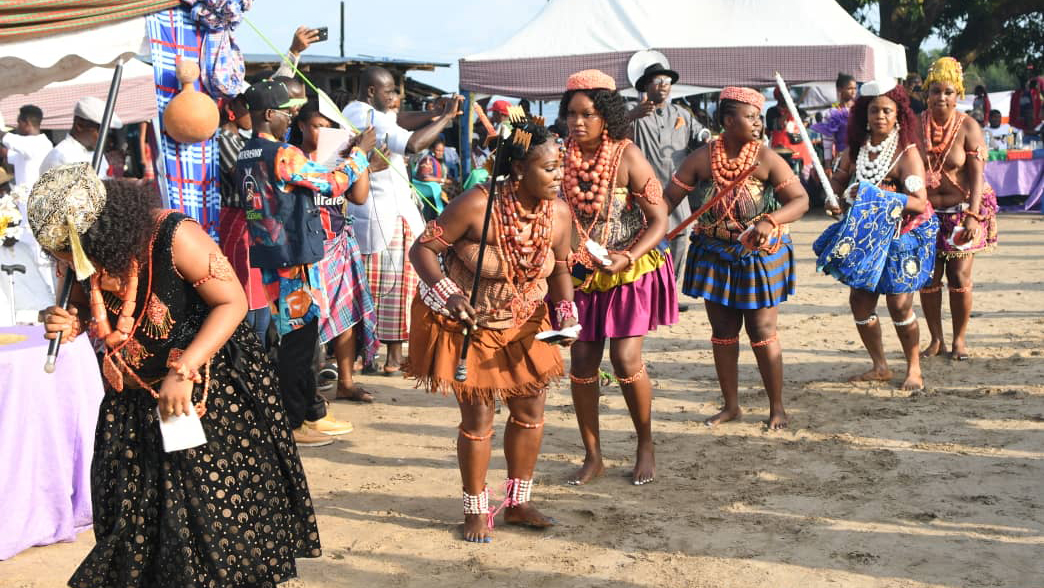
Adeyinka Oduniyi is president of Independent Television Producers Association of Nigeria (ITPAN). He spoke to OMIKO AWA on the declining quality of television content, the effect on society and how to save the situation.
• We’re Practising Apprenticeship In Our Filmmaking, TV Production
What is your association doing to stop airing of TV adverts that are not relevant to our culture and poor TV content?
This has to do with strings of events, which come in two ways: the advertiser and the advertising agency. Most times, we are constrained to work on a project with our creative ideas, the way we feel that will bring out the essence of the work, but we are constrained to work according to the client’s orders. So, most times, the anomalies are not from us, but what the clients want.
Secondly, on like the late 70s and the 80s, when a lot of TV productions were shot locally, many of them are now done outside the country, especially in South Africa and Europe. But the truth still remains that a European or a South African cannot wear the adire material better than a Nigerian; so, no matter how they try, they cannot localise the script to reflect our culture better than any Nigerian. Also, no matter how we too try to imitate them, we can never make our productions to have that western flavour more than they would do.
For ITPAN, the response to this flight is to train and organise conferences for stakeholders, many of whom still struggle to get paid by television stations for their content. We try to make the independent producers to join us, because working as individuals, they cannot fight the system and win, but collectively can make that desired difference. ITPAN is in a better position to negotiate and twist the arms of media owners to dance to its tune. Secondly, training is one of the things needed in this industry; it is a necessity. I can tell you that it is still a struggle to find very good cinematographers; it might sound strange, but it is the truth and indeed a very big shame.
Why are Nigerian TV content providers going to South Africa for productions, even for musicals?
This is the result of dearth in proper training and development of potential for the movies and other related field in the country. Nigerian universities don’t teach filmmaking and other related courses that could help television production and filmmaking. Most of the courses are done abroad, where they are handled as specialties, rather than here where they are taught for a semester or even as a borrowed course.
Apart from this, the truth is what we have in Nigeria is apprenticeship. We are practising ‘apprenticeship’ in our filmmaking and core TV production, and most times, this lacks depth. There’s a science to television production. There are so many elements that come into the making of a film or TV production. It’s not what can be ‘apprenticed.’ It must be learnt. When you hear, ‘give me a wide shot,’ there is a reason for it. It is a pity we are losing huge sum in revenue in this regards and I am happy that government is beginning to see reasons to do something to check the situation.
From what we gathered, one of Nigeria’s top telecommunications company earmarked N10 billion in its yearly budget for advertising last year. But are you equally surprise to hear the lion’s share of this amount ended up in the purse of other countries. In the United States, it is estimated that Hollywood commissions 350 multimillion dollar movie productions every year, which are usually shot in South Africa due to availability of technical expertise, structure and cheap labour relative to what is obtainable in the U.S. This underpins the importance of building human capacity to a nation.
You will recall that we used to have television productions including, the New Masquerade, The Village Headmaster, Cockcrow at Dawn and others in the 80s. These productions were of international standards and were all done locally. Then, the Nigerian Television Authority (NTA) had one of the best training schools in the world. Back then, NTA invested a lot of money in sending their personnel to different places and countries for training, so, they were able to get the skilled personnel to make world class programmes that are still unmatched till date.
Does it mean the trained personnel are no longer there?
We still have them, but they are very few and cannot do much, owing to the challenges they face. However, it must be noted that things began to go sour during military era. The khaki boys never believed in television productions, so, they cut down the budget on education and training and we are now reaping the result. It is as a result of this that mediocrity crept into many Nigerian television productions. Many of the celebrated movies and television series do not necessarily hit the benchmarks of acceptable standards of good storyline, interesting and witty dialogue, great casting and more. There’s a lot of noise in the air. Nigeria is the only country in the world where the same person will be the producer, director, executive director, source for and pays crew, pays the television stations to air the content and source for sponsorship. Content producers in other climes get commissioned to produce content.
Could this be the reason for the decline of documentary movies in the country?
It is not far from it. Do you know that television stations most times demand for entertainment programmes; musicals at the expense of other programmes. The platforms have reduced good content to dust. For most television audience who grew up in the 70s and 80s, Nigerian television has become a boredom. Many would seek a variety of rich content from the social media, where they have talk shows, short videos that go viral on upload and comedy sketches.
What is the place of television with the coming of the social media? Will the new media replace television?
No, it is not possible. In fact, television will continue to remain relevant in Nigeria, especially as Internet penetration is still very low and there is a dearth of infrastructure. From statistics gathered about 85 per cent of Nigerians rely on traditional media that is, television for news and entertainment. Local channels are still more affordable than data; so, TV plays a great role in their lives. The TV no matter the cost of acquiring it remains the cheapest visual medium for a mass market and outreach. This is the reason local TV content needs to be encouraged to produce cultural related programmes, so that outsiders coming into the sector will not infect it with foreign culture.
Perhaps, it is because of this that BET started to run a lot of documentaries, because government has put a policy in place that they must have a minimum of 40 per cent educational content. It is very critical because if we don’t create that kind of balance, we will have a generation who has no respect for information or learning. It is sad that we no longer study history in schools and now we hear that geography too may be pulled out of the school curriculum. Government needs to put policies in place that mandate television stations to show educational programmes. That way, they will look for documentaries or commission producers to do them, otherwise, our children will have nothing in their heads.
However to continue to be relevant these local television stations have to prepare for the digital switchover, because social media have come to stay. They are seriously competing for the content and sponsorship with television stations.
Despite your efforts why is little known of your organisation?
It is because most of our members handle behind the scene operations in many TV stations, but we are doing our best to train young filmmakers in some salient aspects of filmmaking and TV production. We hope through this we will make a great difference and at least, to some extent bridge the gap created. ITPAN is among the oldest content producing association, but owing to the roles we play our works speak more for us; we are mostly not seen, but serious felt by our audiences be it advertising, theatre, movies or other media. The Nigerian television industry has the potential to generate and celebrate home-made world-class content if the people are encouraged.
[ad unit=2]






